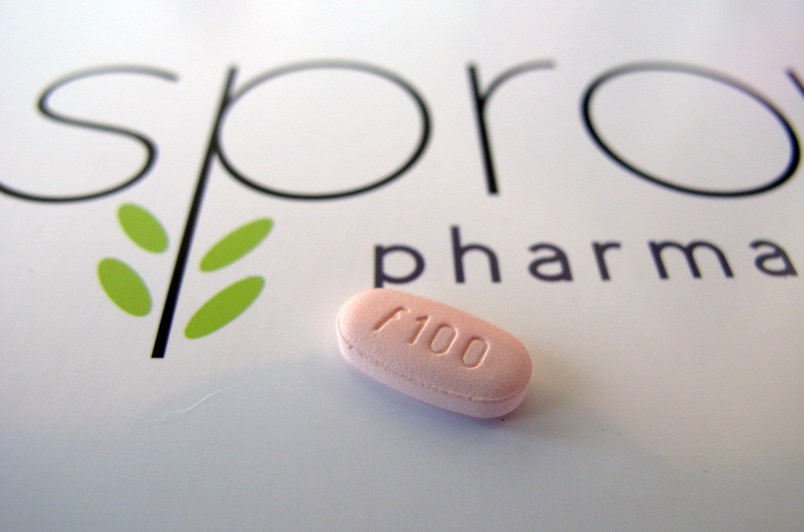Coronavirus’ threats may extend to our drug supply.
The U.S. does not manufacture the vast majority of its pharmaceuticals at home, instead relying on a complex global supply chain that starts off in China.
Experts and public health officials are getting jittery that mass factory closures ordered by the Chinese government have broken the delicate pharmaceutical supply chain, resulting in looming shortages of generic drugs, which account for 90 percent of the pharmaceuticals taken by Americans.
The Food and Drug Administration already announced last week that an unnamed drug is in shortage across the U.S. due to the outbreak.
“The manufacturer just notified us that this shortage is related to a site affected by coronavirus,” FDA Commissioner Stephen Hahn said in a statement at the time. “The shortage is due to an issue with manufacturing of an active pharmaceutical ingredient used in the drug.”
The problems come down to a fragile supply chain for generic drugs that winds from the U.S., through India, and onwards to China.
“This was all predictable,” Rosemary Gibson, author of the 2018 book China Rx: Exposing the Risks of America’s Dependence on China For Medicine, told TPM. “If we don’t plan and prepare, I fear for the health security of our country.”
India accounts for 24 percent of medicine imports to the U.S., according to the FDA, and around a third of imports of medicinal ingredients.
“But India depends on China for most of the core chemicals needed for their generic industry,” Gibson said.
And therein lies the problem: China is the world’s largest manufacturer of the core chemicals that make the drugs what they are, the so-called active pharmaceutical ingredients. So, the mass closure of factories in China has cut off a key portion of the flow of global drugs at the source: the active ingredients.
This issue hasn’t gone unnoticed. Reps. Adam Schiff (D-CA) and Anna Eshoo (D-CA) wrote a column in September 2010 calling China’s dominance a “national security issue.”
“China produces the ingredients found in almost every antibiotic and blood pressure medicine and hundreds of other drugs,” the lawmakers wrote.
The Pentagon perceived the threat last year as well, saying it viewed China’s drug supply dominance as a national security issue in August 2019. That same month, Sen. Chuck Grassley (R-IA) sent a letter to HHS and the FDA noting that more than 80 percent of antibiotics rely on ingredients made in China.
But with coronavirus, those worries appear to be bearing fruit.
The factory closures in China have begun to ripple down the supply chain.
The Indian government restricted around 10 percent of its pharmaceutical export capacity in anticipation of a shortage, amounting to 26 active ingredients used in pharmaceuticals.
Bloomberg cited a Mumbai-based pharmaceuticals consultant named Jagdish Gore as saying “there will be in the short-term or midterm some shortages.”
“The whole supply chain will be disrupted, partly from China and partly from India,” he reportedly added.
FDA Commissioner Hahn told Congress on Tuesday that his agency had reached out to 180 manufacturers to assess the situation.
“We’re working very closely to look at that list to determine how that will affect the medical supply chain,” Hahn said.
But for Gibson, it’s a case of chickens coming home to roost.
“It’s a perfect storm,” Gibson said. “Production shuts down, and countries need medicine for their own people.”
Drug shortages are not unusual in the United States.
The FDA tracks shortages, with a peak of 251 new shortages in 2011 and 54 in 2018. As of this writing, the FDA says that a total of 98 drugs are in shortage.
“And then you add the layer of coronavirus onto it,” Gibson added. “This is why we need domestic production of essential antibiotics and medicines.”







It won’t end with drugs, China is central to a lot of things that are manufactured today, either in raw materials or in some minor part that is then embedded into a larger item. It’s not just iPhones that will have manufacturing issues, and it won’t be a couple weeks before things get back to normal…odds are this and the next quarter will show economic impact, which is why the Trump people are panicking, they know tow back quarters before an election will damage their chances.
Of course, we are here due to the economic policies pushed by the wealthy that globalized the economic system, mostly to their financial benefit…this is really going to push nations to keep at least critical items on their home turf wherever possible, especially if it turns as bad as it could. If 50% of the world’s population gets this, and it kills 1% of those people, it will cause a massive upheaval in world affairs.
The amazingly irksome thing to me is that Big Pharma outsources drug manufacture to countries that don’t always meet US health standards in production; they get the drugs produced for pennies; and then they ship them to the US and gouge the holy hell of anyone trying to fill a prescription.
Not to mention the strategic vulnerability for situations like COVID-45.
“The whole supply chain will be disrupted, partly from China and partly from India,” he reportedly added.
So we’ll just impose tariffs on them. Tariffs fix everything.
What are the odds that this is a drug that is predominantly used by those in the GOP… if it was used primarily by Ds you can bet they would have announced the name to cause a panic that tRump could point to.
Oh swell. All my medications are generic. Sigh.